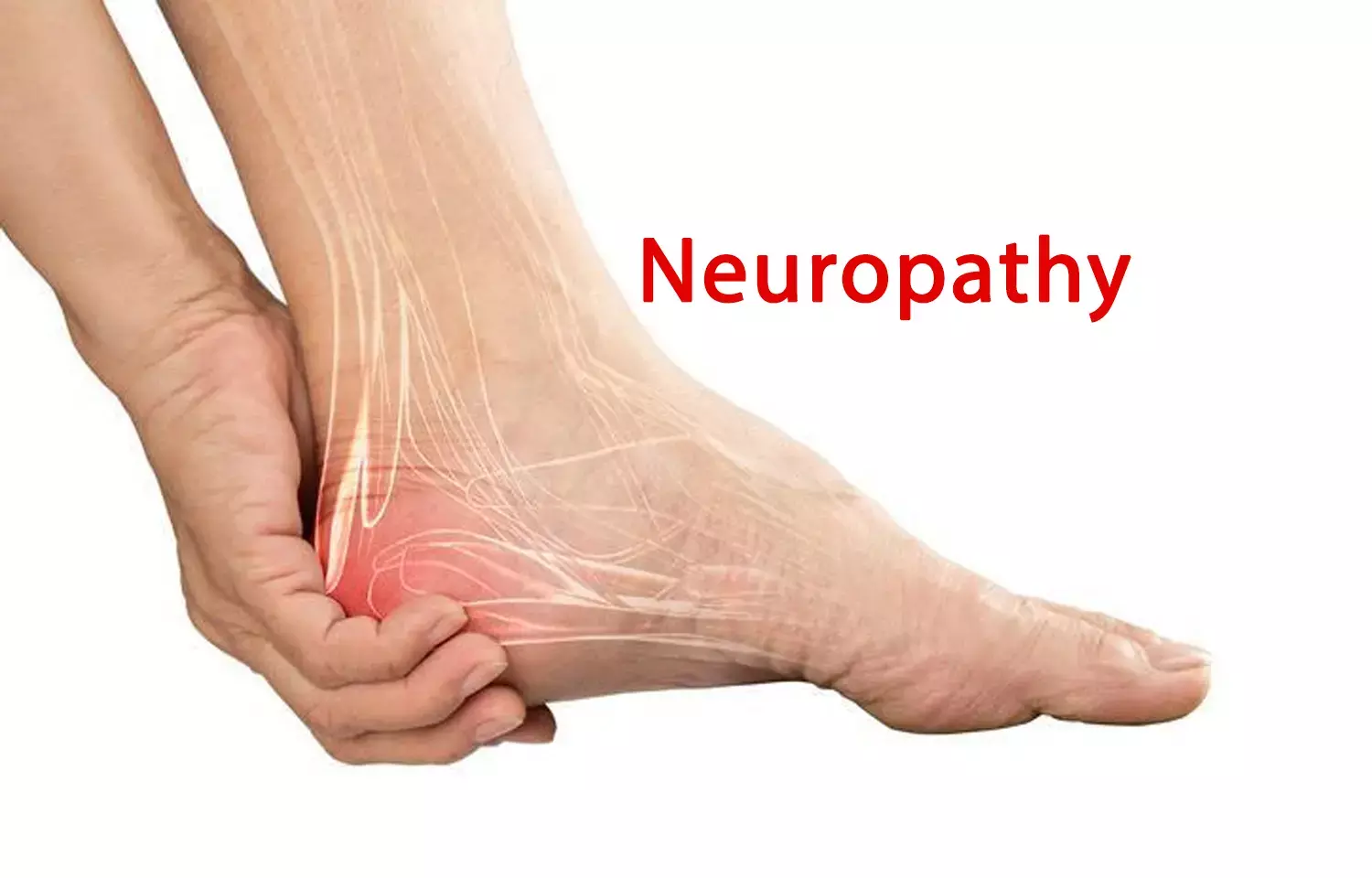- Home
- Medical news & Guidelines
- Anesthesiology
- Cardiology and CTVS
- Critical Care
- Dentistry
- Dermatology
- Diabetes and Endocrinology
- ENT
- Gastroenterology
- Medicine
- Nephrology
- Neurology
- Obstretics-Gynaecology
- Oncology
- Ophthalmology
- Orthopaedics
- Pediatrics-Neonatology
- Psychiatry
- Pulmonology
- Radiology
- Surgery
- Urology
- Laboratory Medicine
- Diet
- Nursing
- Paramedical
- Physiotherapy
- Health news
- Fact Check
- Bone Health Fact Check
- Brain Health Fact Check
- Cancer Related Fact Check
- Child Care Fact Check
- Dental and oral health fact check
- Diabetes and metabolic health fact check
- Diet and Nutrition Fact Check
- Eye and ENT Care Fact Check
- Fitness fact check
- Gut health fact check
- Heart health fact check
- Kidney health fact check
- Medical education fact check
- Men's health fact check
- Respiratory fact check
- Skin and hair care fact check
- Vaccine and Immunization fact check
- Women's health fact check
- AYUSH
- State News
- Andaman and Nicobar Islands
- Andhra Pradesh
- Arunachal Pradesh
- Assam
- Bihar
- Chandigarh
- Chattisgarh
- Dadra and Nagar Haveli
- Daman and Diu
- Delhi
- Goa
- Gujarat
- Haryana
- Himachal Pradesh
- Jammu & Kashmir
- Jharkhand
- Karnataka
- Kerala
- Ladakh
- Lakshadweep
- Madhya Pradesh
- Maharashtra
- Manipur
- Meghalaya
- Mizoram
- Nagaland
- Odisha
- Puducherry
- Punjab
- Rajasthan
- Sikkim
- Tamil Nadu
- Telangana
- Tripura
- Uttar Pradesh
- Uttrakhand
- West Bengal
- Medical Education
- Industry
Nortriptyline and Duloxetine better than pregabalin in idiopathic neuropathy: Study

A recent trial found that Nortriptyline and Duloxetine were efficacious in treating pain caused due to Cryptogenic sensory polyneuropathy. The study was published in the journal "JAMA Neurology", 2020.
Cryptogenic sensory polyneuropathy (CSPN) is a progressive disorder that is caused due to idiopathic reasons. It is the most common cause of referral to Neurologists. It is second in prevalence to diabetic neuropathy. Most patients with Cryptogenic sensory polyneuropathy have significant pain. Various medications like antiepileptics, antidepressants, and sodium channel blockers are prescribed for these patients. But to date, there are no studies that compared the most effective medication for pain reduction in Cryptogenic sensory polyneuropathy.
Also Read:Cataract Surgery in dementia patients complex but without complications, claims study
Researchers from the Kansas Medical Centre, Kansas City conducted a trial to determine the efficacy and tolerability of four drugs pregabalin, duloxetine, nortriptyline, or mexiletine for the treatment of Cryptogenic sensory polyneuropathy.
The study was conducted From December 1, 2014, through October 20, 2017. There were 402 participants from 40 neurology clinics. A Bayesian adaptive, open-label randomized clinical comparative effectiveness study of pain was carried out by doing response adaptive randomization. Participants with CSPN aged 30 years or older, with a pain score of 4 or greater on a numerical rating scale were included. Participants were allocated to 1 of 4 drug groups by the utility function and treatment's sample size for response adaptation randomization. The primary outcome was to measure the efficacy by participant-reported pain reduction of ≥50% from baseline to week 12 and quit rates.
The key findings of the research were:
• Among the 402 participants, there were 213 men [53.0%] with a mean [SD] age of 60.1 [13.4] years.
• There were 343 White [85.3%] participants.
• the utility function of nortriptyline was 0.81, of duloxetine was 0.80, pregabalin was 0.69, and mexiletine was 0.58.
• The probability each medication yielded the highest utility was 0.52 for nortriptyline, 0.43 for duloxetine, 0.05 for pregabalin, and 0.00 for mexiletine.
Thus, the researchers concluded that nortriptyline and duloxetine outperformed pregabalin and mexiletine when pain reduction and undesirable adverse effects are combined to a single endpoint.
The study "Patient Assisted Intervention for Neuropathy: Comparison of Treatment in Real Life Situations (PAIN-CONTRoLS)" was published in the journal "JAMA Neurology" 2020.
Bayesian Adaptive Comparative Effectiveness Randomized Trial
For further reading, click the following link: doi:10.1001/jamaneurol.2020.2590
BDS, MDS
Dr.Niharika Harsha B (BDS,MDS) completed her BDS from Govt Dental College, Hyderabad and MDS from Dr.NTR University of health sciences(Now Kaloji Rao University). She has 4 years of private dental practice and worked for 2 years as Consultant Oral Radiologist at a Dental Imaging Centre in Hyderabad. She worked as Research Assistant and scientific writer in the development of Oral Anti cancer screening device with her seniors. She has a deep intriguing wish in writing highly engaging, captivating and informative medical content for a wider audience. She can be contacted at editorial@medicaldialogues.in.
Dr Kamal Kant Kohli-MBBS, DTCD- a chest specialist with more than 30 years of practice and a flair for writing clinical articles, Dr Kamal Kant Kohli joined Medical Dialogues as a Chief Editor of Medical News. Besides writing articles, as an editor, he proofreads and verifies all the medical content published on Medical Dialogues including those coming from journals, studies,medical conferences,guidelines etc. Email: drkohli@medicaldialogues.in. Contact no. 011-43720751


